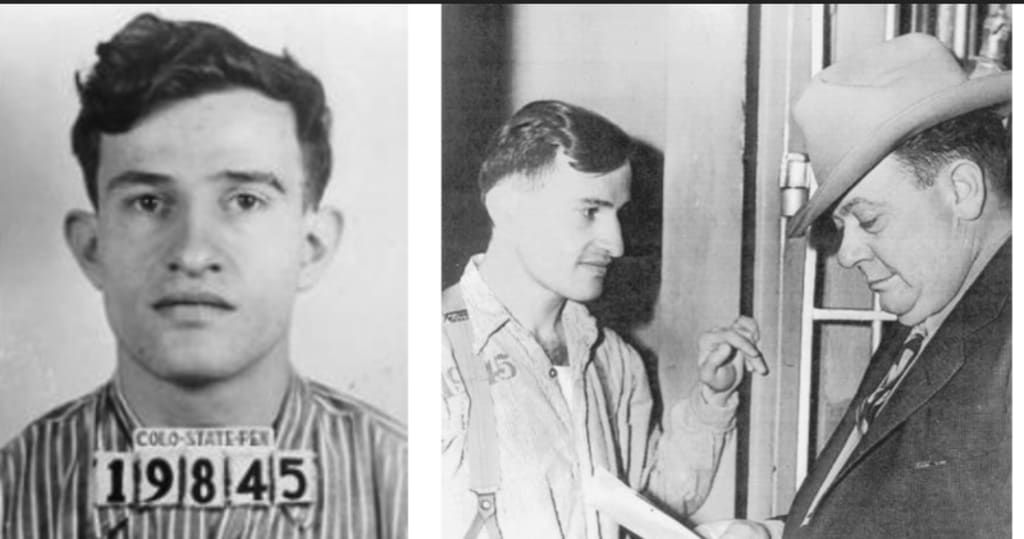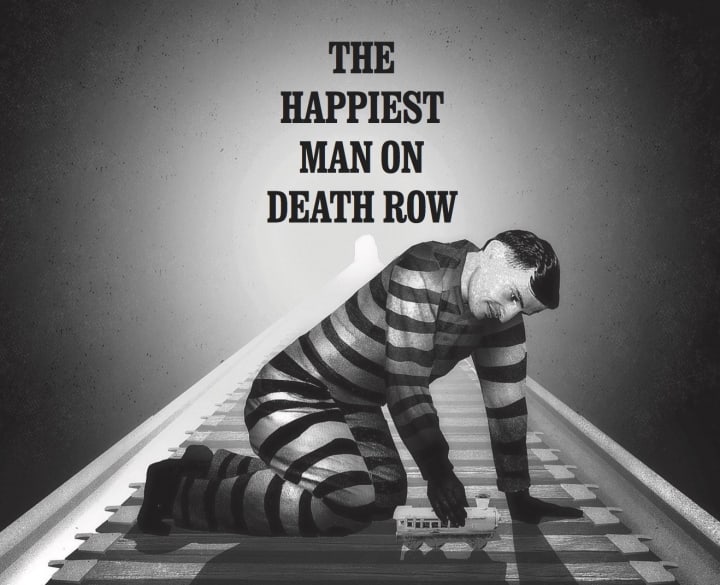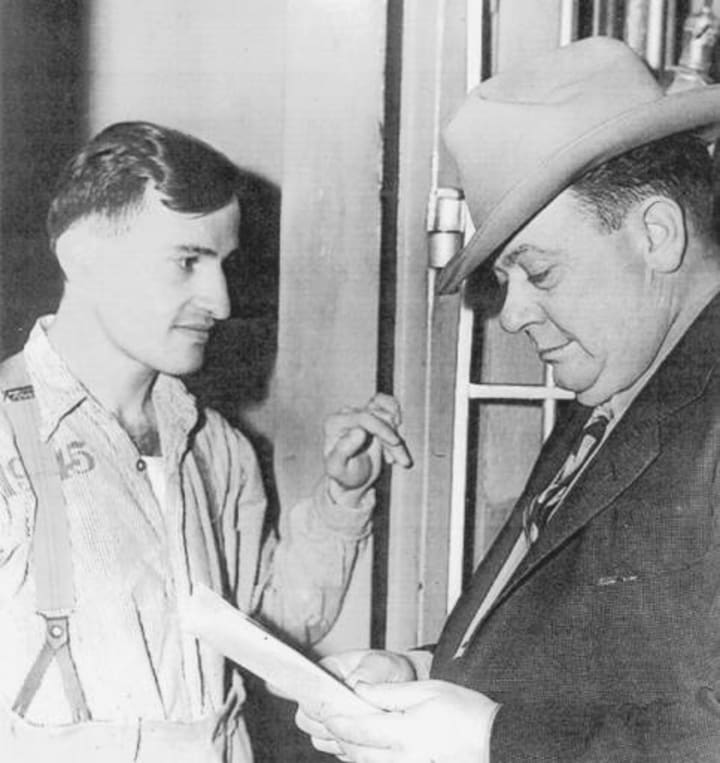Coercion and Confession: The Painful Story of Joe Arridy
Joe Arridy was made to confess to a crime he did not commit

Due to his high suggestibility, Joe Arridy, a mentally challenged individual with an IQ of 46, could easily be manipulated into saying or doing almost anything. Tragically, the police coerced him into confessing to a brutal murder he was innocent of, which ultimately led to his untimely demise.
Inside Story
On the night of August 15, 1936, Dorothy Drain's parents returned to their home in Pueblo, Colorado, to discover their 15-year-old daughter dead in a pool of blood. She had been struck in the head while sleeping. Dorothy's younger sister, Barbara, was also attacked and injured but fortunately survived.
The incident sparked outrage in the town and in the media, which declared that a sex-crazed murderer was on the loose. Police began searching for any man who matched the description provided by two women who claimed to have been assaulted in the vicinity of the Drain house. The search was focused on individuals who appeared to be of Mexican descent.
Joe Arridy
Sheriff George Carroll was under immense pressure to catch the killer and must have felt a sense of relief when Joe Arridy, a 21-year-old man found wandering aimlessly near the local railyards, confessed to the murders.
Joe Arridy's parents were Syrian immigrants, which contributed to his dark complexion, similar to the description provided by the other two women who claimed to have been assaulted in Pueblo. In addition, his parents were first cousins, which may have contributed to his mental disability, which was often referred to as "imbecility" in the newspapers. Several of Arridy's siblings had died at a young age, and one of his other brothers was also reported to be "a high moron." Joe Arridy himself suffered from his family's inbreeding.

Joe Arridy was committed to the Colorado State Home and Training School for Mental Defectives in Grand Junction at the age of 10. He would be in and out of the home for the next few years until he eventually ran away after turning 21.
Arridy had a slow way of speaking, was unable to identify colors, and had difficulty repeating sentences longer than a few words. The superintendent of the state home where he lived recalled that he was "often taken advantage of by other boys." In one instance, they convinced him to confess to stealing cigarettes, even though it was impossible for him to have done so.
It is possible that Sheriff Carroll, like the other boys, realized that Joe Arridy was highly susceptible to suggestion. Carroll did not even bother to write down Arridy's confession, and during the trial, even the prosecution acknowledged that they had to "pry" everything out of him.
Carroll's leading questions included asking Arridy if he liked girls, and then immediately following up with "If you like girls so well, why do you hurt them?" This suggests that Carroll was manipulating Arridy into confessing to the crime, rather than conducting a fair investigation.
Joe Arridy's testimony changed rapidly depending on who was interrogating him, and he remained unaware of basic details of the murders until they were provided to him, such as the fact that an ax was used as a weapon.

It should have been evident to everyone involved that Arridy was not guilty, and that another person was responsible for the killings. Frank Aguilar, a Mexican man who was found guilty of the murders and executed after being identified by Barbara Drain, is the most likely culprit. However, local law enforcement believed that Aguilar and Arridy were partners in the crimes. Despite Aguilar's execution, public outrage in Pueblo persisted. Even though three psychiatrists who testified at Arridy's trial declared him mentally handicapped with an IQ of 46, he was still found guilty and sentenced to death.
Joe Is Executed
Joe Arridy's defense argued that he was not legally sane and therefore incapable of distinguishing right from wrong or performing any action with criminal intent.
Given his difficulty in explaining basic concepts like the difference between a stone and an egg, it seems plausible that he did not comprehend the concept of right and wrong. Additionally, he may have failed to understand the concept of death entirely. According to prison warden Roy Best, Arridy was the happiest man on death row.

When he was informed of his impending execution, he seemed more interested in his toy trains than his fate. For his last meal, Arridy requested ice cream. On January 6, 1939, after giving his beloved toy train to another inmate, Arridy was led to the gas chamber. He grinned as the guards strapped him into the chair. His execution was quick, although Warden Best reportedly cried in the chamber.
It was not until 2011, over seventy years after Joe Arridy's execution, that Colorado Governor Bill Ritter granted him a posthumous pardon.
About the Creator
Rare Stories
Our goal is to give you stories that will have you hooked.
This is an extension of the Quora space: Rare Stories
X(formerly Twitter): Scarce Stories
Official Bookstore: davidkellertruecrime
Writers:
....xoxo
Enjoyed the story? Support the Creator.
Subscribe for free to receive all their stories in your feed. You could also pledge your support or give them a one-off tip, letting them know you appreciate their work.






Comments
There are no comments for this story
Be the first to respond and start the conversation.